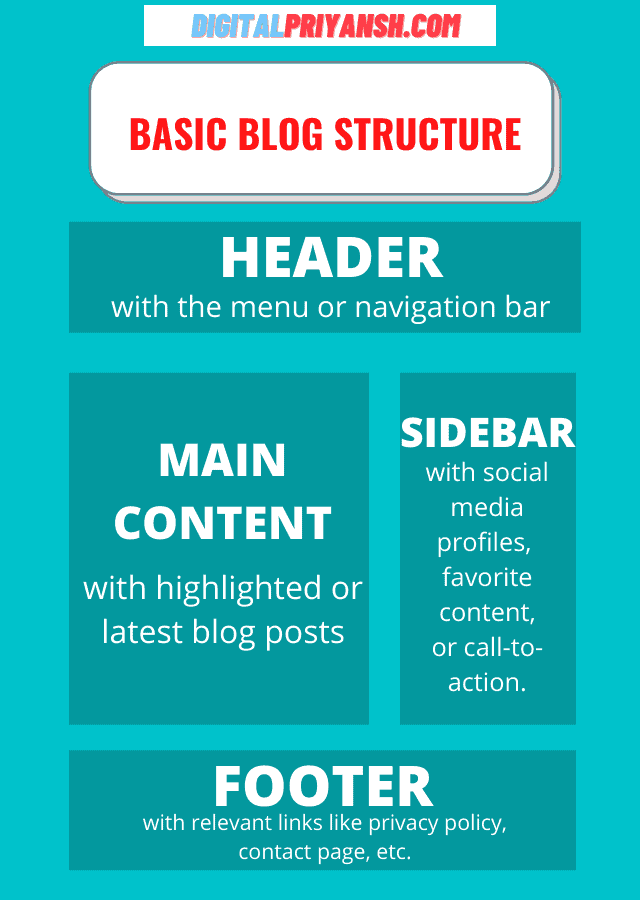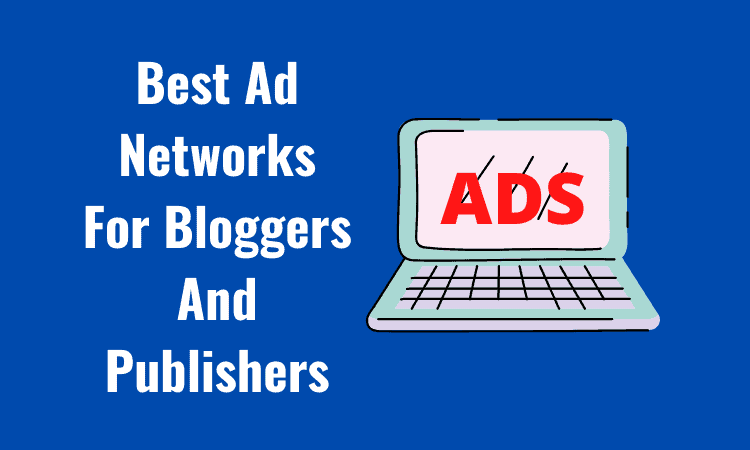Blogs have been around since the early days of the internet, but they have become increasingly popular in recent years as a way for individuals and businesses to share their ideas, opinions, and knowledge with a wider audience.
Blogging has become a vital tool for businesses, organizations, and individuals to establish an online presence, communicate their ideas, and engage with audiences.
In today’s digital age, blogs have transformed from personal online diaries to influential platforms that attract millions of readers worldwide.
However, despite their popularity, many people are still unfamiliar with what a blog is and its benefits.
In this article, we’ll dive into the world of blogs, exploring what they are, how they work, and why they are an essential tool for anyone looking to establish a presence online.
Whether you’re a professional blogger or just getting started, this article will provide valuable insights and information to help you succeed in the exciting and ever-evolving world of blogging.
Let’s get started!
What Is A Blog?
A blog is a regularly updated website where an individual or group of people regularly post articles and updates about a particular topic in an informal or conversational style.
The content of the blog may include text, photos, videos, or other forms of media to enhance the reader’s experience.
A blog is also called an informational website or online journal that displays information in reverse chronological order, with the latest blog posts appearing first.
A blog serves as a platform for individuals, known as bloggers, to produce content in the form of blog posts and express their ideas, insights, and perspectives on a specific subject matter with their audience.
Blogs can cover a wide range of topics, including personal experiences, news, entertainment, technology, finance, politics, education, games, and more.
Blogs are typically owned and managed by either an individual or a small group of people.
These individuals are responsible for creating, publishing, and maintaining the content on the blog.
What Is The Purpose Of A Blog?
There can be many reasons to start a blog.
A blog can serve different purposes depending on the needs and goals of the blogger.
In general, blogs can be used for personal or business purposes.
1. Personal Use.
Blogging can be a creative outlet and a way for individuals to express their thoughts, opinions, and experiences.
Many people use blogs as a platform to share their personal stories, hobbies, interests, and insights on a particular topic.
By writing about their passions and experiences, bloggers can connect with like-minded individuals and build a community around their interests.
Blogs can also be a useful tool for personal development, as bloggers can reflect on their experiences and share their lessons learned with their readers.
2. Business Use.
Blogs are an essential tool for businesses to establish an online presence, build a brand, and connect with customers.
Businesses can use blogs to establish their expertise, promote their products or services, and engage with their customers.
A well-maintained blog can increase website traffic, improve search engine rankings, and provide valuable insights into customer behavior and preferences.
Businesses can use blogs to share company news, announce new products or services, provide educational content, or engage with customers through social media.
Blogs can also be used to improve customer relationships by providing a platform for customers to leave feedback, ask questions, and interact with the brand.
What Is The Structure Of A Blog?

The appearance of blogs has changed with time and now includes a variety of items and widgets.
But even today most blogs follow the same standard features and structures.
You will get to see these common features in a typical blog:
1. Header with menu or navigation bar.
2. Main content area with latest blog posts.
3. Sidebar with social media profiles, recommended content, and call-to-action.
4. Footer with links such as disclaimer, privacy policy, contact page, etc.
The image above is an example of the basic structure of most blogs.
Every item has its own importance and helps blog readers to navigate through the blog.
What Is The Difference Between Blogs And Websites?
While blogs and websites may seem similar, there are some significant differences between the two.
Here are a few key distinctions:
- Content: The main difference between blogs and websites is the type of content they contain. Blogs are typically updated frequently with new content in the form of blog posts, while websites tend to have more static content that doesn’t change as often.
- Structure: Blogs usually have a chronological structure, with the most recent posts appearing at the top of the page. Websites, on the other hand, are often structured hierarchically, with different pages and sections for different types of content.
- Purpose: The primary purpose of a blog is to share personal thoughts, experiences, information and expertise on a particular topic, while websites are often designed to sell products or services, or promote a brand.
- Interaction: Blogs often encourage interaction and discussion through comments and social media, while websites tend to be more static and don’t always offer the same level of engagement.
- Design: Blogs tend to have a simpler design than websites, with a focus on content and easy navigation. Websites may have more complex designs, with more features and functionality.
What Is Blogging?
Blogging is the process of creating and publishing content on a blog, which involves regularly updating the blog with new posts that can include text, images, videos, or other forms of multimedia.
The process of blogging can involve a variety of tasks, such as conducting research and planning content, writing and editing blog posts, formatting and publishing content on the blog, and promoting the blog to attract and engage with readers.
These tasks require a combination of writing skills, creativity, and technical knowledge to create engaging and informative content that resonates with the target audience.
Why Is Blogging So Popular?
Below are a few reasons why blogging is so popular:
1. Blogging Is Easy And No Coding Is Required.
One of the primary reasons why blogging has become so popular is that it is incredibly easy to get started.
Creating a blog requires little to no coding skills.
Many popular blogging platforms, such as WordPress and Blogger, offer user-friendly interfaces that allow users to create and publish content without any technical expertise.
Additionally, many blogging platforms offer a wide range of customizable templates and themes, allowing users to create a unique look and feel for their blog without any design skills.
The ease of use and accessibility of blogging platforms have made it an attractive option for people who want to share their thoughts and ideas with the world.
2. Blogging Is Free.
Another reason why blogging has become so popular is that it is a relatively low-cost activity.
Many popular blogging platforms offer free plans, allowing users to create and publish content without paying a dime.
While these free plans may have some limitations, they are a great option for people who want to get started with blogging without investing a lot of money.
For those who want to take their blogging to the next level, there are also paid options available.
Many blogging platforms offer premium plans that come with additional features and benefits, such as custom domains, advanced analytics, and more.
These paid plans are a great option for people who are serious about their blogging and want to invest in their online presence.
3. Blogging Is A Great SEO Tool.
In addition to being a great way to share content, blogging is also an effective SEO tool.
Search engine optimization (SEO) refers to the practice of optimizing your website and its content to rank higher in search engine results pages (SERPs).
Search engines, such as Google, love fresh, relevant, and high-quality content.
By regularly publishing blog posts that target relevant keywords, you can improve your website’s ranking in search results and attract more traffic to your site.
As a result of this increased traffic, your business can potentially generate more leads, sales, and revenue.
4. Blogging Allows To Express Thoughts And Opinions.
Blogging is also a great way to express your thoughts and opinions on a wide range of topics.
Whether you are passionate about politics, sports, or technology, blogging allows you to share your unique perspective with the world.
By publishing regular blog posts, you can develop a loyal following of readers who are interested in your thoughts and opinions.
Blogging can also be a great way to connect with like-minded individuals and engage in meaningful discussions.
By creating a space where people can share their thoughts and ideas, you can build a community of people who are interested in the same topics as you.
5. Blogging Is A Great Way To Promote Products And Services.
For businesses, blogging can be an effective marketing tool.
By creating high-quality blog content that addresses the needs and interests of your target audience, you can attract more traffic to your website and build a loyal following of readers.
By including calls-to-action (CTAs) in your blog posts, you can encourage readers to take action, such as signing up for your email list or making a purchase.
By using your blog to guide potential customers through the buyer’s journey, you can increase your chances of converting leads into paying customers.
6. Blogging Enables To Share Knowledge And Experience With Others.
Another reason why blogging has become so popular is that it enables people to share their knowledge and experience with others.
Whether you are an expert in a particular field or just have a passion for a particular topic, blogging allows you to share your insights and experiences with a global audience.
By sharing your knowledge and experience through blog posts, you can help others who may be struggling with the same issues or questions.
This can be a fulfilling and rewarding experience, as you can help others while also growing your online presence and reputation.
7. Blogging Can Help Individuals And Businesses To Establish Themselves As An Expert In Their Field.
By regularly publishing high-quality blog content, individuals and businesses can establish themselves as experts in their field.
By sharing insights, tips, and advice on topics related to your industry or niche, you can demonstrate your knowledge and expertise to your target audience.
Establishing yourself as an expert in your field can help to build trust and credibility with potential customers.
This can lead to increased sales and revenue for your business, as well as opportunities for speaking engagements, media interviews, and other professional opportunities.
8. Blogging Helps Individuals To Connect With Others.
Blogging can also be a great way to connect with other like-minded individuals.
By sharing your thoughts and ideas through blog posts, you can attract readers who are interested in the same topics as you.
This can lead to meaningful discussions and exchanges of ideas, as well as the formation of new friendships and relationships.
In addition to the potential for building a readership and attracting like-minded individuals, blogging can also offer a platform for individuals to connect with others in their industry or niche.
By networking with other bloggers and industry leaders, individuals can gain valuable insights, feedback, and even new business opportunities.
9. People Can Make Money Online Through Blogging.
One of the most attractive aspects of blogging is that it can be a source of income for many people.
By building a loyal following of readers, individuals and businesses can monetize their blog through a variety of methods, such as advertising, sponsored content, affiliate marketing, CPA marketing and more.
While it takes time and effort to build a successful blog that generates income, the potential rewards can be significant.
By creating high-quality content that attracts readers and engages them with your brand or business, you can create a sustainable source of income that can support your lifestyle and goals.
10. Blogging Helps To Become A Better Writer.
Finally, blogging can be a great way to improve your writing skills.
By regularly writing and publishing blog posts, you can develop your writing skills and become a more effective communicator.
Blogging requires you to distill complex ideas and thoughts into concise and compelling pieces of content.
By honing your writing skills through blogging, you can become a more effective writer in all areas of your life, from your professional career to your personal relationships.
Who Is A Blogger?
A blogger is a person who creates and manages a blog.
They are responsible for creating content, publishing it on their blog, and promoting it to attract readers.
In simple words, a blogger is a person who writes and publishes content on a blog.
The content of the blog can vary depending on the blog’s topic, niche, and purpose.
Bloggers can be anyone, from individuals who write about their personal experiences and interests to businesses that use blogs to promote their products or services.
Bloggers often have a specific niche or area of expertise that they focus on, such as fashion, travel, technology, food, etc.
Bloggers can choose to write anonymously or use their real names, and they can blog on a full-time or part-time basis.
Many bloggers started their blogs as a hobby or a way to express their creativity, but some have turned their blogs into successful businesses or careers.
What Does A Blogger Do?
Below are a few things that most bloggers do:
1. Bloggers Write And Publish Content On Their Blog.
The primary task of any blogger is to create original, engaging, and unique content.
This is the heart of a blog and what keeps readers coming back for more.
This content can be anything from personal stories and opinions, product reviews, how-to guides, listicles, and more.
A blogger’s job is to research, write, edit, and publish content that is engaging, informative, and unique.
They need to have a good understanding of their niche and audience to create content that resonates with them.
Bloggers must also incorporate images, videos, and other multimedia elements to enhance their posts.
They also need to ensure that their content is original and not copied from other sources.
Plagiarism is a serious offense in the blogging world, and bloggers must ensure that they are creating original content.
2. Bloggers Share Their Thoughts, Opinions, And Ideas With The World.
Another important aspect of blogging is the ability to share your thoughts, opinions, and ideas with the world.
This can include personal experiences, insights into a particular industry or topic, or commentary on current events and trends.
By sharing their thoughts and ideas, bloggers can establish themselves as experts in their field and build a loyal following of readers who value their perspective and insights.
This can lead to opportunities for collaboration, speaking engagements, and other professional opportunities.
3. Self-Promotion.
In addition to creating content, bloggers also need to promote their blog and their brand to attract readers and build their audience.
This involves utilizing various marketing and promotional tactics, such as social media marketing, email marketing, guest posting on other blogs, etc.
Social media marketing is one of the most effective ways for bloggers to promote their blog and connect with their audience.
By sharing their blog posts on social media platforms such as Twitter, Facebook, and Instagram, bloggers can reach a wider audience and attract new readers to their blog.
Email marketing is another powerful tool for bloggers, as it allows them to directly reach their subscribers and keep them updated on new blog posts, promotions, and other news related to their brand.
Guest posting on other blogs is another effective way for bloggers to promote their brand and build their audience.
By contributing high-quality content to other blogs in their industry or niche, bloggers can attract new readers to their blog and establish themselves as experts in their field.
4. Bloggers Recommend Useful Products and Services.
Another task that bloggers do is that they recommend useful products and services that can help them solve problems, achieve their goals, or improve their lives in some way.
By reviewing and recommending products and services that are relevant and useful to their audience, bloggers can build trust and credibility with their readers and potentially earn affiliate commissions or other forms of compensation for their recommendations.
The goal is to provide valuable information to readers and help them make informed decisions.
However, it’s important for bloggers to be transparent and ethical in their product recommendations, and to only promote products and services that they truly believe in and have used themselves.
This helps build trust with their audience and ensures that they are providing valuable information.
5. Bloggers Sell Their Own Products And Services.
Finally, bloggers can sell their own products and services through their blog.
This can include digital products such as eBooks, courses, and webinars.
It can also include physical products such as merchandise and books.
This is a lucrative way for bloggers to monetize their blog and earn income from their expertise and experience.
However, selling products and services through a blog requires a lot of work.
Bloggers must create high-quality products that provide value to their audience.
Also, it’s important for bloggers to ensure that their products and services are relevant and priced appropriately based on their value and the level of demand of their readers.
Do Bloggers Make Money Through Their Blogs?
The short answer to this question is YES!
Bloggers make money through their blogs in a variety of ways.
Some of the most common methods include advertising revenue, affiliate marketing, sponsored content, selling their own products or services, and donations.
Advertising is one of the most common ways for bloggers to monetize their blogs.
They can place ads on their site through platforms like Google AdSense and earn money based on the number of clicks or impressions the ads receive.
However, this method may require a high amount of traffic to generate significant income.
Affiliate marketing is another popular method where bloggers promote products or services on their blog and receive a commission for any resulting sales.
This can be done through affiliate networks like Amazon Associates or individual partnerships with brands.
Sponsored content is when a brand pays a blogger to create content promoting their product or service.
However, bloggers need to ensure they disclose any sponsored content to their readers to maintain transparency.
Selling their own products or services can be a lucrative way for bloggers to monetize their blogs.
This can include digital products like e-books or online courses, physical products like merchandise, or consulting services based on their area of expertise.
Finally, some bloggers may receive donations from their readers through platforms like Patreon or Ko-fi, allowing them to support their favorite creators directly.
It’s important to note that monetizing a blog requires significant effort, time, and dedication to building a strong audience and creating valuable content.
Bloggers may need to experiment with different methods and strategies to find the ones that work best for their niche and audience.
How To Start A Blog?
If you’re interested in starting your own profitable blog, there are a few steps you can take to get started:
- Choose a niche: Decide on a specific topic or niche that you’re interested in and passionate about. This will help you create valuable content and build a dedicated audience.
- Choose a domain name: Your domain name is the web address that people will use to access your blog, so it’s important to choose a name that’s easy to remember and reflects your brand or niche. You can purchase a domain name through a domain registrar, such as GoDaddy, Bluehost, Namecheap, etc.
- Choose a web hosting: Web hosting is the service that allows your blog to be accessible on the internet. There are many web hosting companies to choose from, such as Bluehost, HostGator, Hostinger, etc. Once you’ve chosen a domain name and web hosting provider, you can link them together to create your blog.
- Choose a platform: There are many blogging platforms out there, such as WordPress, Blogger, and Medium. Find the best platform for your needs and goals by researching and comparing them.
- Set up your blog: Once you’ve chosen a platform, create your blog and customize it to fit your brand and style. This may include choosing a theme, designing a logo, and creating a navigation menu.
- Create valuable content: Consistently creating valuable and engaging content is key to building a strong audience and growing your blog. Brainstorm ideas, conduct research, and write high-quality posts that offer value to your readers.
- Optimize for SEO: Optimizing your blog for search engine optimization (SEO) is crucial in order to increase visibility and attract traffic to your site. Conduct keyword research, use relevant keywords in your blog content, and use internal linking and backlinking strategies to boost your search engine rankings.
- Promote your blog: Promoting your blog on social media and other platforms can help you reach a wider audience and grow your readership. Use social media platforms like Twitter, Facebook, and Instagram to promote your blog posts, engage with readers, and build a community around your brand.
- Monetize your blog: Once you’ve built a solid audience and established your brand, you can explore different methods of monetizing your blog, such as advertising revenue, affiliate marketing, sponsored content, or selling your own products or services.
Conclusion.
Blogs have become an integral part of the online world, serving as a platform for people to express their ideas, share their expertise, and connect with others around the globe.
Whether you are a hobbyist or a professional, a blog can be a powerful tool for building your personal brand, establishing yourself as an authority in your niche, and even earning a living.
Understanding the definition of a blog, blogging, and blogger is crucial for anyone looking to start their own blog or engage with the blogosphere.
By following best practices in SEO, content creation, and community building, you can leverage the power of blogging to achieve your personal and professional goals.







